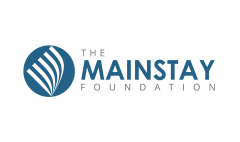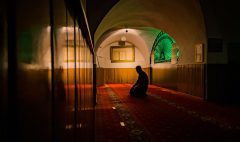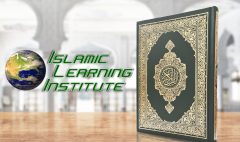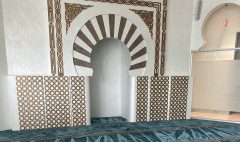The Berlin Graduate School Muslim Cultures and Societies
November 1, 2016 2023-08-19 15:12The Berlin Graduate School Muslim Cultures and Societies
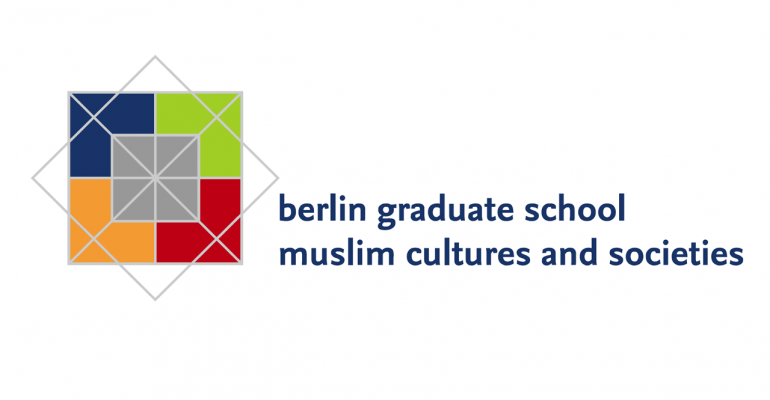
The Berlin Graduate School Muslim Cultures and Societies
The Berlin Graduate School Muslim Cultures and Societies (BGSMCS) investigates the plurality, changeability, and global connectedness of Muslim cultures and societies.
The area of study includes Muslim societies in the Middle East, Africa, and Asia, as well as Muslim communities in Europe and North America. The Graduate School examines, in a systematic and comparative way, concepts, practices, and institutions variously understood as Islamic.
Special attention is given to relations between Muslims and non-Muslims, as well as forms of inter- and intra-cultural communication. In close cooperation with its partner institutions in Germany and abroad, the Graduate School offers doctoral candidates a broad educational program of exceptional quality coupled with intensive mentoring for individual dissertation projects, training that will qualify graduates to hold leading positions in academia, the media, and politics. The Graduate School’s three-year doctoral program begins in October. Up to fifteen doctoral students are admitted annually, ten of whom areawarded scholarships provided by the Graduate School.
Local Partners
Since 2007 the Berlin Graduate School Muslim Cultures and Societies has been funded by the Excellence Initiative of the German Federal and State Governments and by Free University of Berlin. Participating institutions are Free University of Berlin (Speaker university), Humboldt University of Berlin (Institute of Asian and African Studies), and, as the only non-university institution, the Center for Modern Oriental Studies in Berlin.
Berlin, with its wide-ranging variety of academic and cultural institutions, provides a unique environment for the Graduate School. Doctoral candidates will benefit from this wealth of resources. Berlin boasts of excellent libraries and manuscript collections, especially the Staatsbibliothek, as well as two museums that house important collections relevant to the area of study. With its Foreign Office, embassies, political foundations, and major think tanks – notably German Institute for International and Security Affairs – Berlin is at the centre of German decision making vis-à-vis the Muslim world.
The Graduate School can also build upon a well-established and successful history of collaboration among many of the Principal Investigators, who are mainly affiliated to Free University of Berlin, Humboldt University of Berlin and Center for Modern Oriental Studies. They offer doctoral candidates opportunities to meet fellow researchers and to find additional research contexts related to their projects. Contacts students make and activities in which they engage will allow them to acquire the expert knowledge essential for academia, politics, journalism, and social involvement alike.
Partners in Berlin
- Ethnological Museum of Berlin Arnimallee 27, 14195 Berlin
- Forum Transregionale Studien Europe in the Middle East – The Middle East in Europe (EUME) Wallotstraße 14, 14193 Berlin
- Max Planck Institute for Human Development Lentzealle 94, 14195 Berlin
- Museum of Islamic Art Bodestraße 1-3, 10178 Berlin
- German Institute for International and Security Affairs (SWP) Ludwigkirchplatz 3-4, 10719 Berlin
- Center for Literary and Cultural Research Berlin (ZFL) Schützenstr. 18, 10117 Berlin
Other Partners in Germany
- Bayreuth International Graduate School for African Studies, University of Bayreuth, Geschwister-Scholl-Platz 3, D-95445 Bayreuth
- Europa – Universität Viadrina Frankfurt (Oder) Vergleichende Sozialwissenschaften, Große Scharrnstraße 59, 15230 Frankfurt (Oder)
- Qantara.de An Internet Portal by Deutsche Welle (DW), Kurt-Schumacher-Straße 3, 53113 Bonn
- Universität Erfurt, Institut für Religionswissenschaft, Nordhäuser Straße 63, 99089 Erfurt
Management Committee
- Director: Prof. Gudrun Krämer (gudrun.kraemer@fu-berlin.de)
- Deputy Director: Prof. Dr. Hansjörg Dilger (hansjoerg.dilger@berlin.de)
Publications
Publications authored by the doctoral students and postdocs of the BGSMCS are listed here. We would like to draw particular attention to the monographs, which are the product of completed doctoral theses, as well as to the edited volumes and contributions to volumes which are the result of collaborations between supervisors, postdocs, and doctoral students. You can find different formats – such as collections of material or conference reports – and selected PhD dissertations under the heading Online Publications. Articles on current topics in the press authored by members of the graduate school can be found under Journalistic Contributions.
- Monographs
- Edited Volumes
- Book Chapters
- Journal Articles
- Online Publications
- Journalistic Contributions
Conferences
- Mobile Muslim Professionals: Transregional Connectedness and (Not-State) Cooperation in Central Asia, Southeast Asia and the Middle East, April 2016
- Intersections of Islamic Theology and Law, November 2015
- Provincializing the Social Sciences, June 2015
- Provincializing the Social Sciences – A Preliminary Discussion, December 2014
- In Search for the Kingdom – Emerging Scholarship on Saudi Arabia. From the First Saudi State to the Present, June 2013
- Ibn Qayyim al-Jawziyya; normative and theological dimensions of a Mamluk polygraph, June 2013
- Revolution Reborn? Egypt and the Middle East in the Context of Global Forces, Progressive Movements, and Structures of Domination, October 2012.
- New Mobilities and Evolving Identities. Islam, Youth and Gender in South and Southeast Asia, April 2012
- 18.th International DAVO-Congress, October 2011
- New Approaches to Gender and Islam, April 2011
- Time for Medialisation. Integrating Media and Transcultural Communication Research within Islamic and Area Studies, April 2010
- Prayer in the City, June 2009
Seminars and Workshops
- Digital Security Workshop, June 2016
- The Foucault Seminar, June 2016
- In the Wake of the “Ethical Turn”, May 2016
- On Crisis, April 2016
- Doing Anthropology of Religion: Emotions in the Field, February 2016
- Intolerance and Tolerance in the Arab Modern, January 2016
- Liberal Terror, December 2015
- Affective Archives, December 2015
- Zones of Being and Non-Being in the Post-Colony, November 2015
- It’s not charity, it’s a chair of power, November 2015
- Critique and Power in the Work of Michel Foucault, June 2015
- History Making and Memory Practices, July 2014
- The scope of ethnographic fieldwork, July 2014
- Neoliberal Governmentality: The concept and beyond, June 2014
- Reformism and Anti-Reformism in the Ottoman Empire and in Iran, December 2013
- Identity and Reflexivity in Qualitative Research, July 2013
- Crisis of Secularism, December 2012
- Discourse Analysis and Online Ethnography, November 2012
- Fatwa’s in Indonesia, July 2012
- Order, Religion, Politics: The Fatwa in Contemporary Islam, July 2012
- On Reading and Writing about “Muslim Cultures” of South Asia, July 2012
- The Body: A Critical Engagement with the Corporeal Turn, June 2012
- Pre-Fieldwork, June 2012
- Social movements and Cultural Imaginaries of the Arab Spring, May 2012
- Transformations of Female Islamic Authority: Of Muftiyas, Qadiyas, and Mujtahidahs, May 2012
- Transnational Salafism (or Wahabism). Connecting the Global with the Local, the Textual with the Contextual: Discourses and Practices, April 2012
- Cities, Urbanist Projects and Global Connections, July 2011
- Revolts, Enlightenment and Modern Arab Thought, July 2011
- Transforming Social Order in African Muslim Contexts. (Re)construction of Identities, Institutions, Movements, Markets, June 2011
Contacts:
- Address: Altensteinstraße 48, 14195 Berlin, Germany
- Phone: +49 30 838 53417
- Fax: +49 30 838 53244
- Email: office@bgsmcs.fu-berlin.de
- Website: http://www.bgsmcs.fu-berlin.de/



